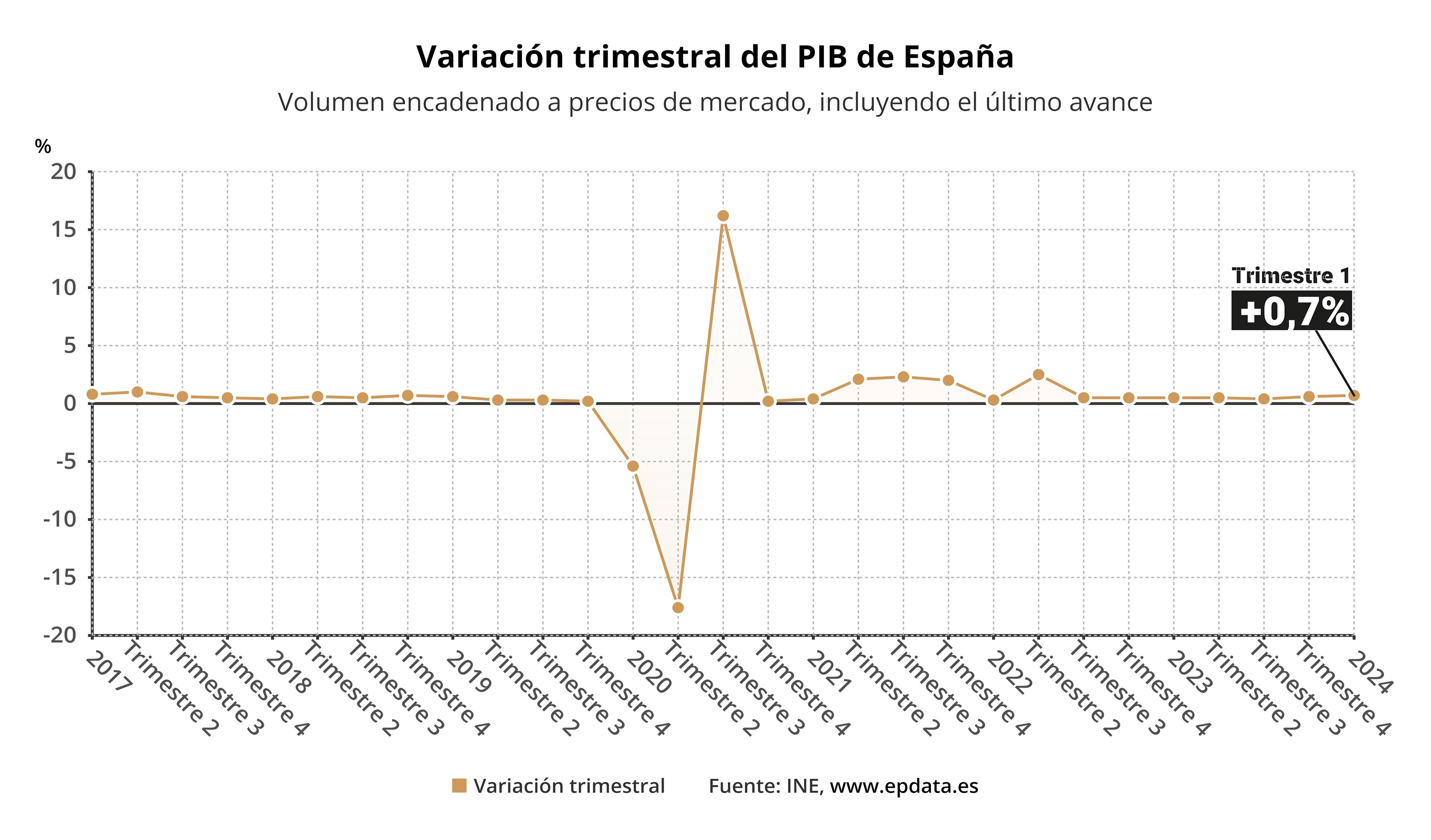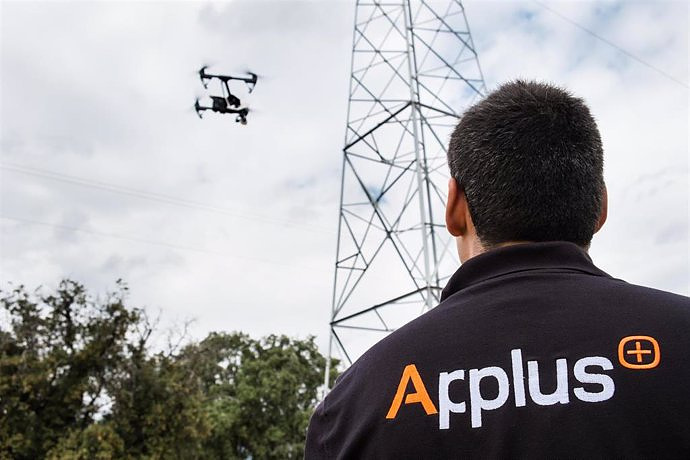UNICEF denounces a 19 percent increase in poverty rates compared to 2021 in Eastern Europe and Central Asia
Some 4,500 children could die before their first year as a result of this growth
MADRID, 17 Oct. (EUROPA PRESS) -
The United Nations Children's Fund (UNICEF) has estimated that child poverty has increased by 19 percent in Eastern Europe and Central Asia since 2021; that is, four million more children during the last twelve months mainly due to the war in Ukraine and the increase in inflation.
In a report published this Monday on the occasion of the International Day for the Eradication of Poverty, UNICEF warns of a "domino effect" caused by poverty, which usually leads to "a sharp increase in school dropouts and infant mortality."
The document, which collects data from 22 countries in the region, puts children in the spotlight of the economic crisis caused by the conflict. While children make up 25 per cent of the total population, they account for about 40 per cent of the 10.4 million more people in poverty this year.
In terms of countries, Russia accounts for nearly three-quarters of the total increase in the number of children living in poverty due to the war in Ukraine and the cost-of-living crisis in the region, with 2.8 million children. more now living in households below the poverty line.
In Ukraine, the UN fund points out, there are now half a million more children living in poverty, the second largest increase, followed by Romania, with 110,000 more children in poverty.
UNICEF's Director General for Europe and Central Asia, Afshan Khan, laments that "beyond the obvious horrors of war, such as the killing and maiming of children, or mass displacement - the consequences of the war in Ukraine are having a devastating impact on children in Eastern Europe and Central Asia.
"Children across the region," he adds, "are being swept away in the terrible wake of war" and if nothing is done about it, "the profound increase in child poverty will result in the loss of lives, learning and futures." ".
This increase, UNICEF warns, means that 4,500 children could die before their first birthday and 117,000 children could drop out of school this year alone, according to the study.
Furthermore, this is a very long-term crisis. One in three children born and raised in poverty, UNICEF points out, will live in the same situation their adult lives, leading to an intergenerational cycle of hardship and deprivation.
The report recommends a series of solutions to try to reduce this growth as much as possible, starting with the delivery of a "universal monetary benefit" and the increase in social aid.
In addition, UNICEF calls for the protection of social spending and the provision of health, nutritional and social care services to pregnant women, babies and young children.
"Austerity measures will hurt children the most, driving even more of them into poverty, and making it harder for families already dealing with it," adds Khan. "We have to protect and expand social support for vulnerable families before the situation gets worse."
In Spain, where one in three children is at risk of poverty or social exclusion (33.4% of the AROPE rate, 2.8 million boys and girls), the consequences of the increase in food prices and basic supplies are having an added effect in households with boys and girls, in which food and transport costs are notably increased compared to other types of households.
In homes with fewer resources, this may mean having to choose this winter, for example, between having enough food or keeping the house warm.
UNICEF Spain, together with other children's organizations such as the Childhood Platform and Save the Children, advocates the inclusion in the General State Budgets (PGE) 2023 of a universal upbringing benefit, in the form of a refundable tax deduction, much more ambitious than the measure to extend the maternity benefit (from 0 to 3 years) contained in the budgets.
These benefits, in addition to supporting parenting, would have a considerable impact on reducing child poverty and would guarantee a social protection floor for all households with children in the face of this and successive crises. Likewise, the current situation urges the need to decisively launch the State Action Plan for the implementation of the European Child Guarantee approved this summer.

 Exploring Cardano: Inner Workings and Advantages of this Cryptocurrency
Exploring Cardano: Inner Workings and Advantages of this Cryptocurrency Seville.- Economy.- Innova.- STSA inaugurates its new painting and sealing hangar in San Pablo, for 18 million
Seville.- Economy.- Innova.- STSA inaugurates its new painting and sealing hangar in San Pablo, for 18 million Innova.- More than 300 volunteers join the Andalucía Compromiso Digital network in one month to facilitate access to ICT
Innova.- More than 300 volunteers join the Andalucía Compromiso Digital network in one month to facilitate access to ICT Innova.-AMP.- Ayesa acquires 51% of Sadiel, which will create new technological engineering products and expand markets
Innova.-AMP.- Ayesa acquires 51% of Sadiel, which will create new technological engineering products and expand markets The former president of Uruguay José Mujica announces that he suffers from a tumor in the esophagus
The former president of Uruguay José Mujica announces that he suffers from a tumor in the esophagus The PSOE leadership relieved by Sánchez's continuity: "Thank you president"
The PSOE leadership relieved by Sánchez's continuity: "Thank you president" Large banks obtain 6.6 billion euros in profits in the first quarter, 17.2% more
Large banks obtain 6.6 billion euros in profits in the first quarter, 17.2% more The Ibex 35 lost 0.5% at the opening, but maintained 11,000 points, with CaixaBank as the 'red lantern'
The Ibex 35 lost 0.5% at the opening, but maintained 11,000 points, with CaixaBank as the 'red lantern' How Blockchain in being used to shape the future
How Blockchain in being used to shape the future Not just BTC and ETH: Here Are Some More Interesting Coins Worth Focusing on
Not just BTC and ETH: Here Are Some More Interesting Coins Worth Focusing on They create a bank of machinery sounds to prevent breakdowns through artificial intelligence
They create a bank of machinery sounds to prevent breakdowns through artificial intelligence UPV students build a prototype of a wooden house to move to Equatorial Guinea
UPV students build a prototype of a wooden house to move to Equatorial Guinea The UA opens the call for the Impulso 2024 Awards for the best innovative business initiatives
The UA opens the call for the Impulso 2024 Awards for the best innovative business initiatives ALI, virtual assistant from Alicante, internationally recognized by the OECD
ALI, virtual assistant from Alicante, internationally recognized by the OECD A million people demonstrate in France against Macron's pension reform
A million people demonstrate in France against Macron's pension reform Russia launches several missiles against "critical infrastructure" in the city of Zaporizhia
Russia launches several missiles against "critical infrastructure" in the city of Zaporizhia A "procession" remembers the dead of the Calabria shipwreck as bodies continue to wash up on the shore
A "procession" remembers the dead of the Calabria shipwreck as bodies continue to wash up on the shore Prison sentences handed down for three prominent Hong Kong pro-democracy activists
Prison sentences handed down for three prominent Hong Kong pro-democracy activists ETH continues to leave trading platforms, Ethereum balance on exchanges lowest in 3 years
ETH continues to leave trading platforms, Ethereum balance on exchanges lowest in 3 years Investors invest $450 million in Consensys, Ethereum incubator now valued at $7 billion
Investors invest $450 million in Consensys, Ethereum incubator now valued at $7 billion Alchemy Integrates Ethereum L2 Product Starknet to Enhance Web3 Scalability at a Price 100x Lower Than L1 Fees
Alchemy Integrates Ethereum L2 Product Starknet to Enhance Web3 Scalability at a Price 100x Lower Than L1 Fees Mining Report: Bitcoin's Electricity Consumption Declines by 25% in Q1 2022
Mining Report: Bitcoin's Electricity Consumption Declines by 25% in Q1 2022 Oil-to-Bitcoin Mining Firm Crusoe Energy Systems Raised $505 Million
Oil-to-Bitcoin Mining Firm Crusoe Energy Systems Raised $505 Million Microbt reveals the latest Bitcoin mining rigs -- Machines produce up to 126 TH/s with custom 5nm chip design
Microbt reveals the latest Bitcoin mining rigs -- Machines produce up to 126 TH/s with custom 5nm chip design Bitcoin's Mining Difficulty Hits a Lifetime High, With More Than 90% of BTC Supply Issued
Bitcoin's Mining Difficulty Hits a Lifetime High, With More Than 90% of BTC Supply Issued The Biggest Movers are Near, EOS, and RUNE during Friday's Selloff
The Biggest Movers are Near, EOS, and RUNE during Friday's Selloff Global Markets Spooked by a Hawkish Fed and Covid, Stocks and Crypto Gain After Musk Buys Twitter
Global Markets Spooked by a Hawkish Fed and Covid, Stocks and Crypto Gain After Musk Buys Twitter Bitso to offset carbon emissions from the Trading Platform's ERC20, ETH, and BTC Transactions
Bitso to offset carbon emissions from the Trading Platform's ERC20, ETH, and BTC Transactions Draftkings Announces 2022 College Hoops NFT Selection for March Madness
Draftkings Announces 2022 College Hoops NFT Selection for March Madness























